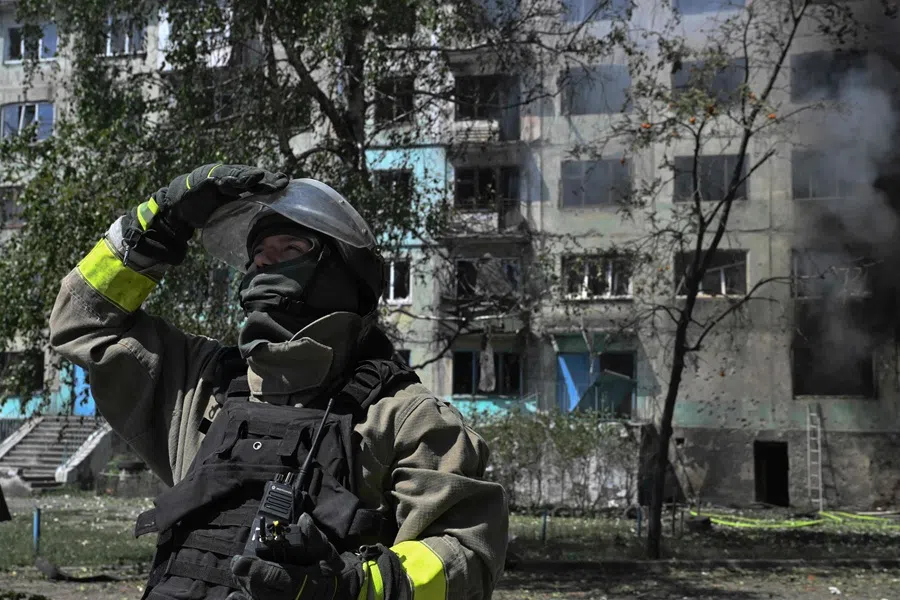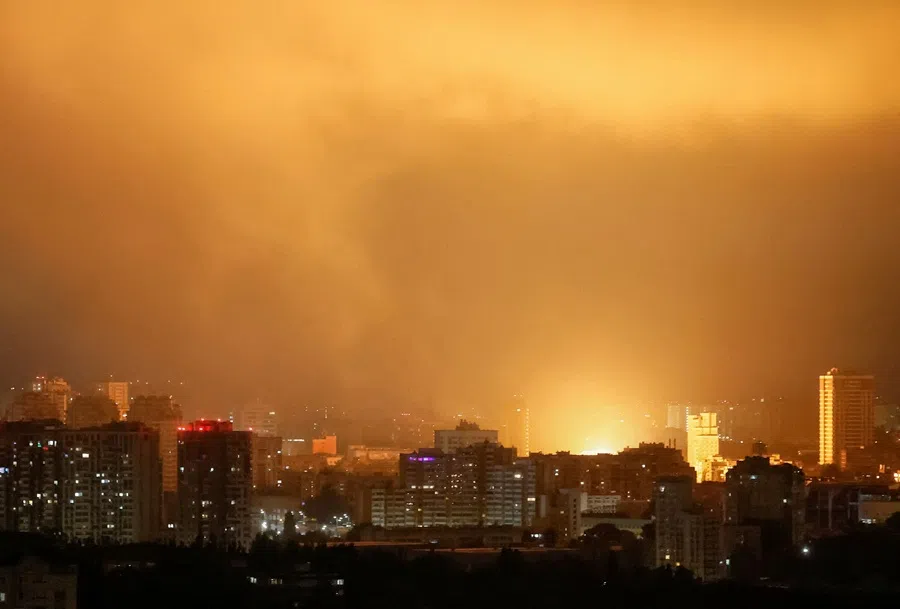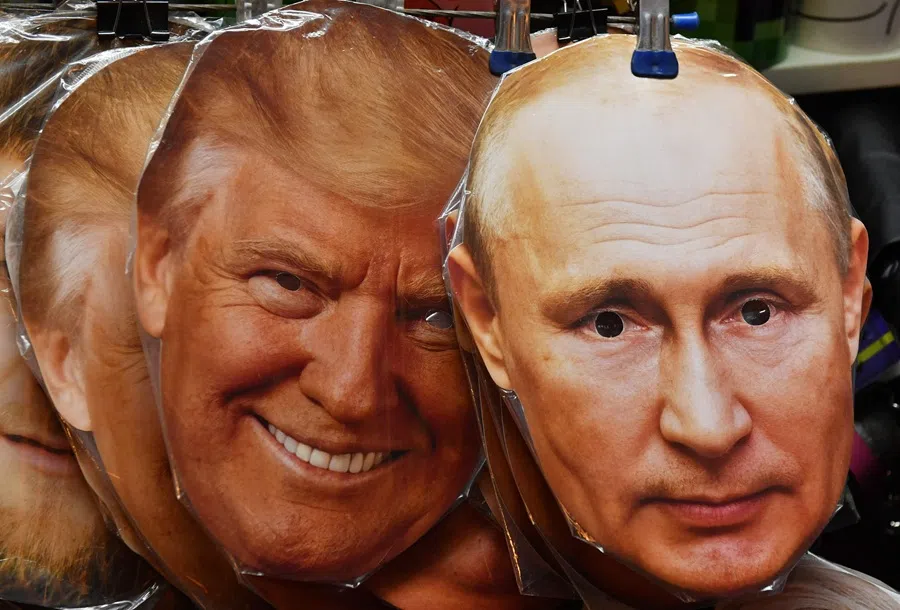Trump-Putin summit: Is China nervous about a US-Russia deal?
The upcoming Trump-Putin summit in Alaska raises hopes for a Russia-Ukraine ceasefire, while China watches closely, weighing potential impacts on its strategic partnership with Russia and US-China tensions, Lianhe Zaobao correspondent Yu Zeyuan assesses the meeting.

US President Donald Trump and Russian President Vladimir Putin are set to meet in Alaska on 15 August, with global attention fixed on the outcome of this “Trump-Putin summit”.
As Russia’s strategic partner — and repeatedly accused by the West in recent years of offering both overt and covert support to Moscow in the Ukraine war — China is closely watching the trajectory and outcome of the Trump-Putin summit. Of particular interest is whether US-Russia relations will begin to thaw, and what that might mean for the future of China-Russia ties. Some Chinese analysts are even speculating that once the US has “settled” (搞定) the Russia challenge, it could redirect its full strategic focus toward confronting China.
Topics of discussion
Chinese state media Beijing Daily reported on 9 August that the summit could yield a “major deal”. Quoting Zhang Hong, a researcher at the Chinese Academy of Social Sciences, the report suggested the Alaska summit’s outcome might far exceed expectations, as Trump’s diplomacy often “defies expectations”.
Zhang believes that the Russia-Ukraine war has effectively reached a stalemate and anticipates that the upcoming Russia-US summit could produce a comprehensive ceasefire agreement in Ukraine, along with the lifting of all sanctions on Russia — potentially setting the stage for a normalisation of Russia-US relations.
Russia and the US might also discuss Arctic development, energy and rare earth cooperation, which is possibly the symbolic significance behind the venue of Alaska, which is close to the Arctic. — Zhang Hong, Researcher, Institute of Russian, Eastern European & Central Asian Studies, Chinese Academy of Social Sciences

He thinks that Russia and the US might also discuss Arctic development, energy and rare earth cooperation, which is possibly the symbolic significance behind the venue of Alaska, which is close to the Arctic. Also, Russia has consistently insisted on legitimising its control over Crimea and the four eastern Ukrainian regions. However, given its weak economic performance and the pressure of Trump’s sanctions, whether Russia might soften its stance on territorial issues is a key question to watch during the Alaska summit.
Trump’s agenda
Zhang noted that Trump has long coveted the Nobel Peace Prize, and if this summit leads to a Russia-Ukraine ceasefire, it would be a major diplomatic and political achievement for him to showcase. A ceasefire could trigger a rapid warming of Russia-US relations, paving the way for normalisation. Both countries may fully resume engagement and begin cooperating. Meanwhile, such a shift might leave Europe uneasy and force Ukraine to accept geopolitical losses. Trump’s strategic focus could then pivot towards Asia-Pacific.
However, the Russia-Ukraine war, which has gone on for over three years, has caused massive bloodshed on both sides, while Europe and the US have poured substantial resources into supporting Ukraine. With Russia still controlling about 20% of Ukraine’s territory, pressuring both Russia and Ukraine to agree to a ceasefire is no easy task for Trump.
Trump proposed a “territory swap” between Russia and Ukraine, essentially an exchange involving Ukrainian territory — getting Russia to halt further advances while implicitly recognising its control over eastern Ukrainian regions and Crimea. This demand is unacceptable to Ukraine and unlikely to be easily accepted by the European Union (EU).

On 9 August, Ukrainian President Volodymyr Zelenskyy stated in a video statement that Ukraine is ready for real decisions that can bring peace but will not make concessions on its territory. “No one will deviate from this — and no one will be able to. Ukrainians will not gift their land to the occupier,” Zelenskyy asserted.
On 9 August, the UK’s The Telegraph carried an article which commented that the summit between Trump and Putin in Alaska was in truth a straightforward defeat for the West: Russia would retain most of the occupied territories, sanctions would be eased, and the US would halt military aid to Ukraine. The article stated that if Putin was successful in retaining his spoils, it would send a signal to global “dictators” — NATO would not protect its allies. The international order established after 1945 is dying, to be replaced by a “colder and darker” new order.
Clearly, both the EU and Ukraine are unwilling to see the Trump-Putin summit produce a resolution to the Russia-Ukraine war that compromises Ukrainian territorial integrity. However, they have limited leverage to rein in Trump’s unpredictable approach.
Resolving the war in Ukraine
Clearly, both the EU and Ukraine are unwilling to see the Trump-Putin summit produce a resolution to the Russia-Ukraine war that compromises Ukrainian territorial integrity. However, they have limited leverage to rein in Trump’s unpredictable approach. At best, they can appeal to him not to sideline Ukraine and the EU by negotiating directly with Russia on unilateral terms.
In response, Trump expressed support for trilateral talks involving the US, Russia and Ukraine. However, if such talks prove unfeasible, he plans to proceed first with the Trump-Putin summit, followed by a US-Ukraine summit, while dispatching Vice-President JD Vance to Europe to coordinate with regional partners.
However, it is clear that Trump is focused on “scoring points” for himself. Even if he cannot persuade Putin to agree to Ukraine’s participation, Trump would likely proceed with a summit with Putin first to establish a Russia-Ukraine ceasefire framework, then pressure Ukraine and the EU to accept it.

Trump’s actions are not entirely self-serving. He is acutely aware that the endless continuation of the Russia-Ukraine war would eventually bog down the US, hindering its ability to fully address its greatest strategic rival: China. Therefore, Trump would rather sacrifice the interests of Ukraine and the EU, to try and pull the US out of the Russia-Ukraine war.
Putin is well aware of Trump’s motivations, and after more than three years of war, Russia is showing signs of fatigue. If the Trump-Putin summit results in an agreement that meets Russia’s core demands — namely, recognition of its control over eastern Ukraine and Crimea — and paves the way for improved US-Russia relations and a gradual easing of Western sanctions, Putin would have a strong case to present at home. This is why he appears more than willing to travel to Alaska for the summit.
The role of China
However, Putin is also keenly aware that China is a crucial partner to Russia in sustaining the Russia-Ukraine war and in negotiating with the US. To dispel China’s concerns about the Trump-Putin summit, Putin called Chinese President Xi Jinping on 8 August to brief him on recent Russia-US communications and emphasised that the comprehensive strategic partnership of coordination between Russia and China would not change.
Xi expressed that China welcomes continued dialogue between Russia and the US and supports efforts to improve bilateral ties as a means to promote a political resolution to the Ukraine crisis.
For China, a partial or full ceasefire would at least mean that the US is less likely to intensify pressure on China-Russia trade or impose “secondary sanctions” on China.

China recognises that the frozen relations between Russia and the West cannot be thawed quickly. Even if the Trump-Putin summit leads to some form of agreement on a Russia-Ukraine ceasefire, the conflict is far from over. For China, a partial or full ceasefire would at least mean that the US is less likely to intensify pressure on China-Russia trade or impose “secondary sanctions” on China.
Therefore, China is likely to accept any outcome from the Trump-Putin summit, viewing it as potentially more beneficial than not. As for concerns that improved US-Russia relations might lead to a joint front against China, such speculation is unfounded — China generally has little reason to worry about this scenario.
This article was first published in Lianhe Zaobao as “特普会”对中国的利与弊”.





![[Big read] When the Arctic opens, what happens to Singapore?](https://cassette.sphdigital.com.sg/image/thinkchina/da65edebca34645c711c55e83e9877109b3c53847ebb1305573974651df1d13a)